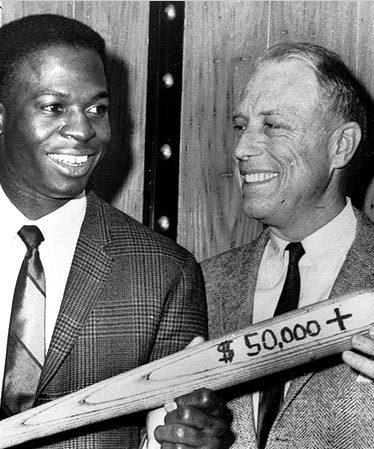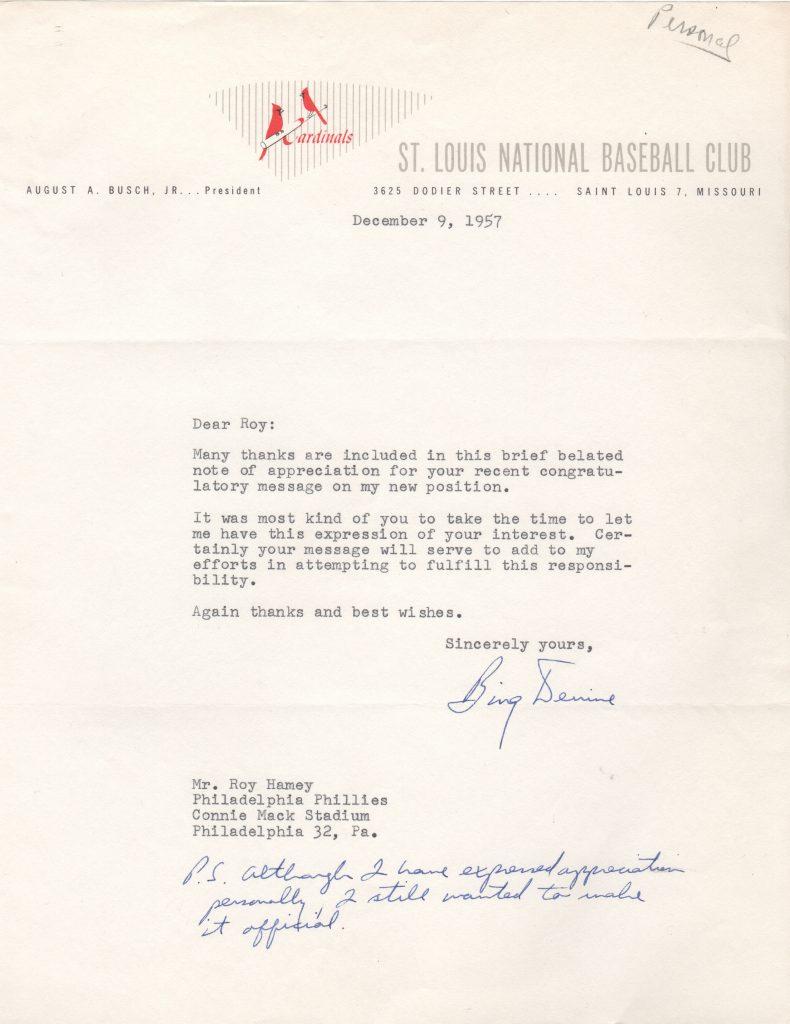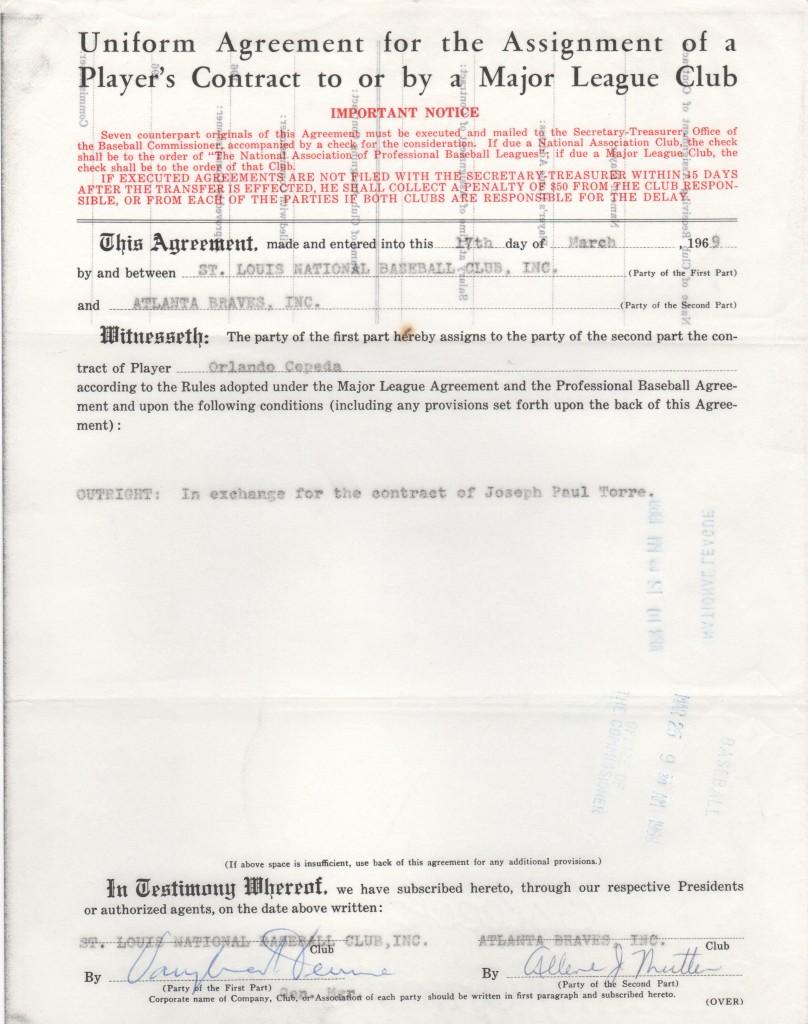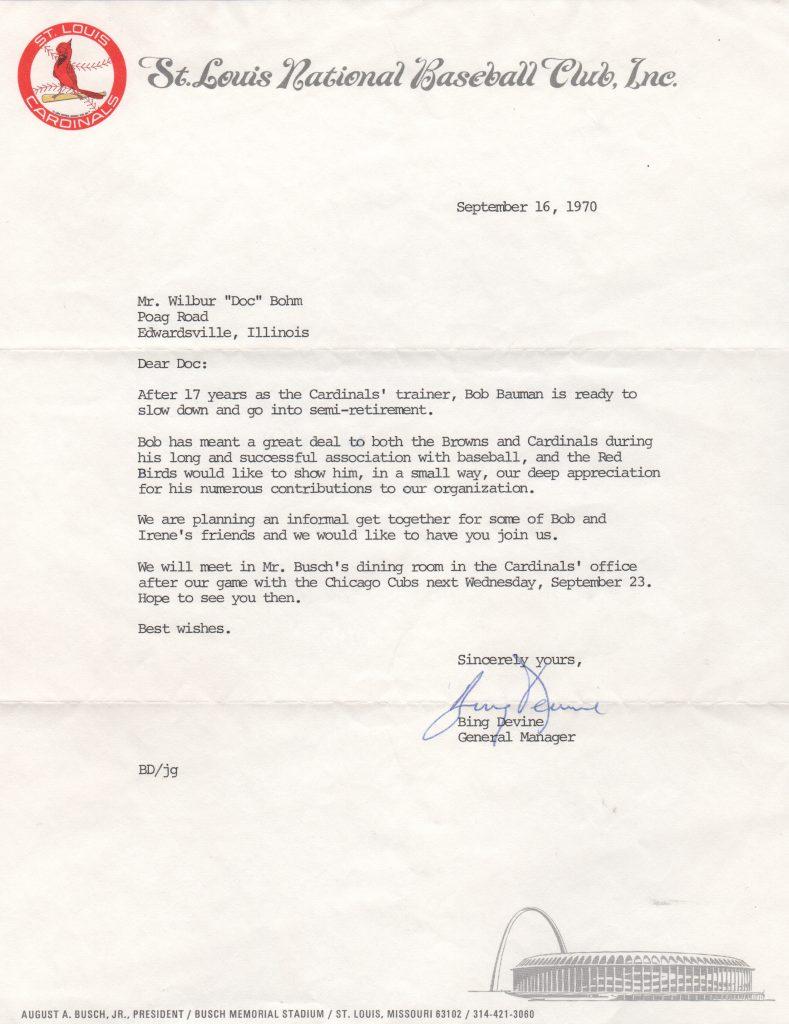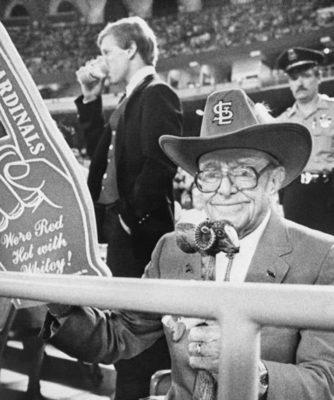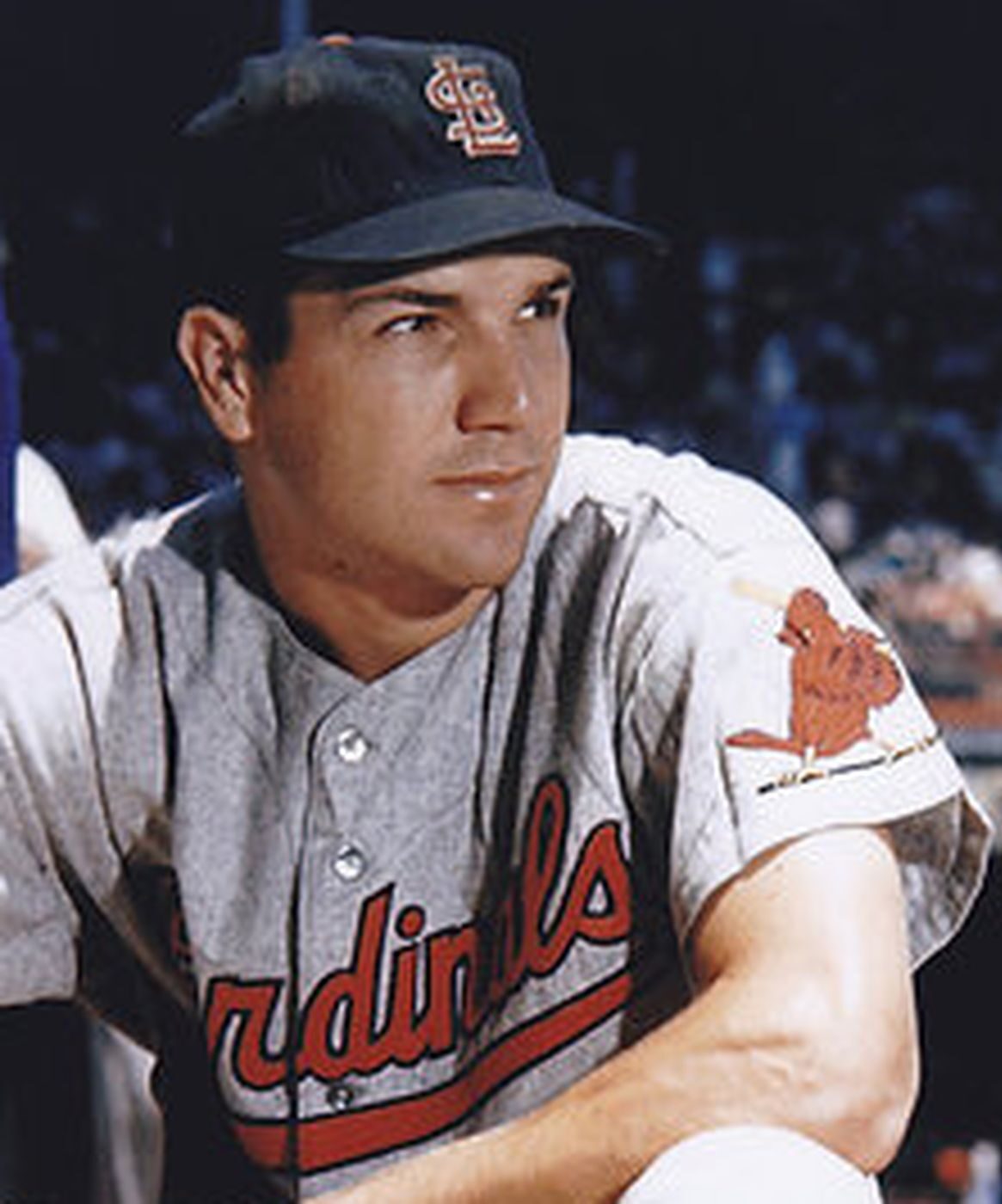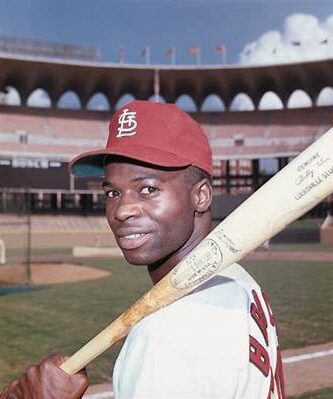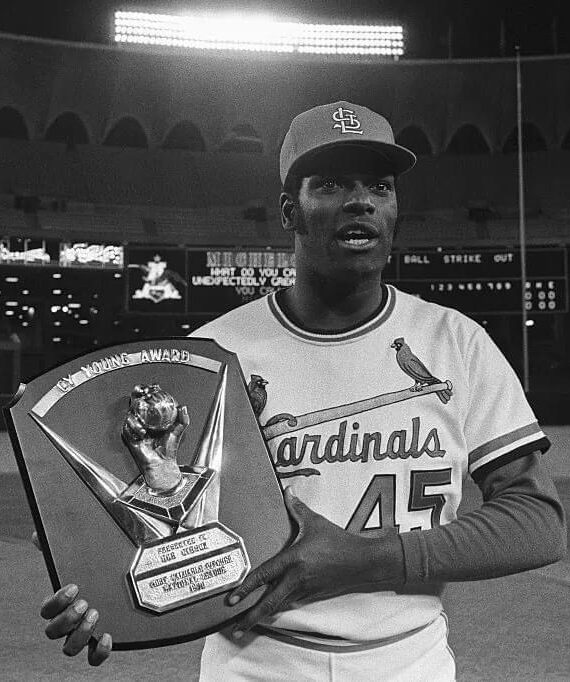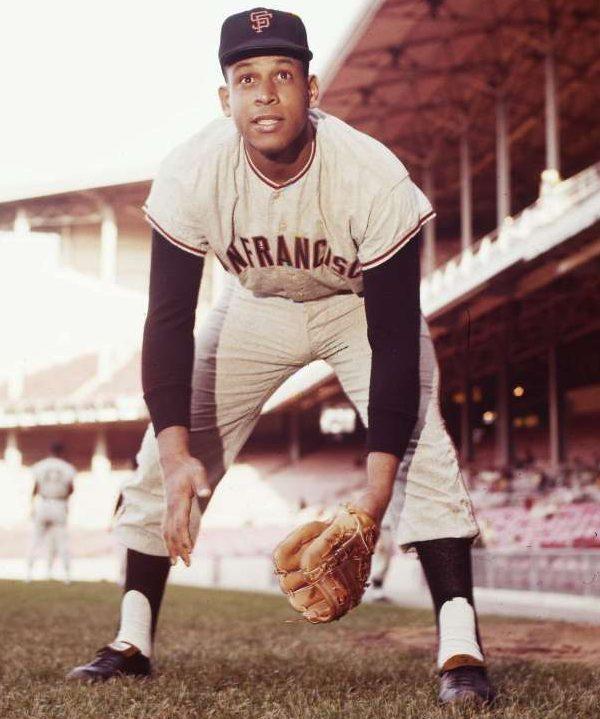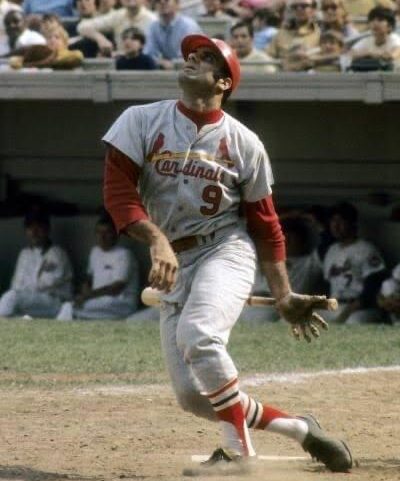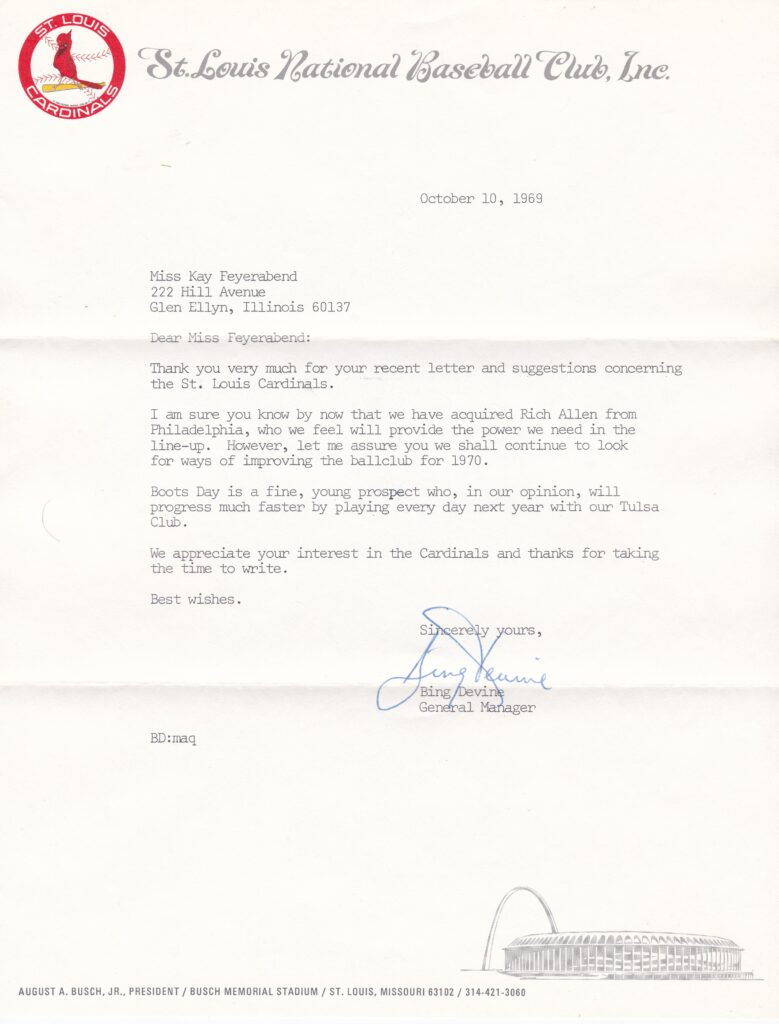
Bing Devine had a long and illustrious career as a baseball executive. The zenith of his time in the game came from 1964-1969 he helped build three World Series champions.
He was also the architect of a trade that changed baseball history. On October 7, 1969 Devine completed a trade that was essentially a swap of Curt Flood for Dick Allen.
The deal was historic because of its impact. Flood refused to report to the Phillies. He felt the existing labor laws made the players little more than property of the owners. After 12 years in St. Louis he frowned on the prospects of uprooting his family and moving across the country.
Instead of reporting to Philadelphia, he sued baseball and its commissioner Bowie Kuhn. In a letter to baseball’s chief Flood wrote, ““After twelve years in the major leagues, I do not feel I am a piece of property to be bought and sold irrespective of my wishes. I believe that any system which produces that result violates my basic rights as a citizen and is inconsistent with the laws of the United States and of the several States.
“It is my desire to play baseball in 1970, and I am capable of playing. I have received a contract offer from the Philadelphia club, but I believe I have the right to consider offers from other clubs before making any decision. I, therefore, request that you make known to all Major League clubs my feelings in this matter, and advise them of my availability for the 1970 season.”
By 1972 his case reached the US Supreme Court. Though the justices preserved the status quo, the episode shook the foundations of baseball and emboldened the players’ union.
Three years later the players gained free agency. Later baseball instituted the 10/5 rule also known as the Curt Flood Rule. This gave veto power over trades for players with at least ten years of service and five with the same club.
Today the Curt Flood episode is looked at as a turning point in baseball labor relations. It all started with Bing Devine’s trade.
In the collection is this letter dated three days after the fateful swap.
Devine writes, “I am sure you know by now we have acquired Rich Allen from Philadelphia, who we feel will provide power we need in the line-up,” Devine writes. “However, let me assure you we will continue to look for ways to improve the ballclub for 1970.”
Allen did give the Cards a middle-of-the-order threat, slugging 34 homers and driving in 101 runs. At the time of the trade, 31-year old centerfielder Flood had won 7 consecutive Gold Glove Awards. He sat out the 1970 season and played in just 13 games in ’71 before retiring.
A hero to many, Flood gave up his future for the betterment of the players.
